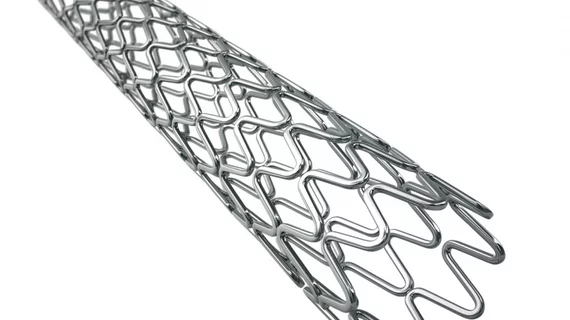Two of Medtronic’s drug-eluting stents (DES)—the Resolute Onyx and the Resolute Integrity—have been granted FDA approval to treat coronary artery disease patients with chronic total occlusion (CTO), the company announced Feb. 26.
CTO, in which the artery is completely blocked, is considered more difficult to treat than a typical percutaneous coronary intervention (PCI) case. It affects 20 to 30 percent of people undergoing diagnostic coronary angiography, but PCI is only completed in 5 to 7 percent of those patients, according to Medtronic’s press release.
"Revascularization of CTO presents physicians with many challenges—both regarding procedural technique and tools—given the patient and disease complexity,” David Kandzari, MD, director of interventional cardiology and chief scientific officer of Piedmont Heart Institute in Atlanta, said in the release. Kandzari was the principle investigator of the PERSPECTIVE study, which supported the FDA’s expanded indication for CTO.
"The newest-generation, thin-strut Resolute Onyx DES, in particular, is well-suited to address the procedural challenges of deliverability and conformability, with now demonstrated excellent early and late safety and efficacy."
The PERSPECTIVE trial was a single-center study of 183 CTO patients who received PCI with the older-generation Resolute Integrity DES. At one year, there were low rates of repeat revascularization (1.1 percent), cardiac death (2.2 percent) and stent thrombosis (0.6 percent).
Resolute Onyx gained its initial FDA approval in 2017 and comes in sizes from 2 to 5 millimeters, according to Medtronic.

